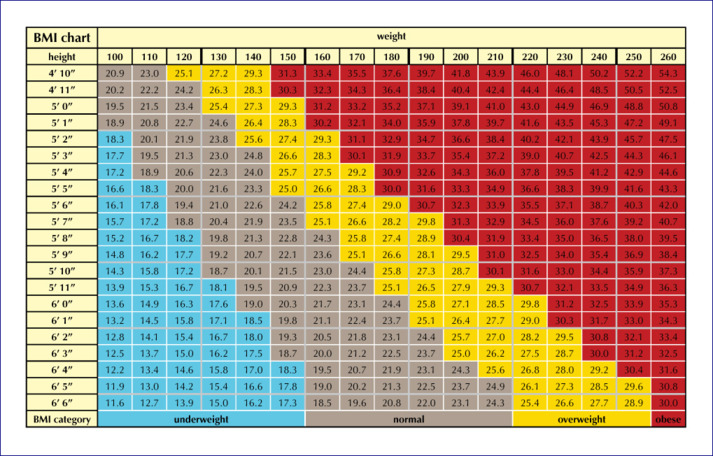© COPYRIGHT 2011-2024 Fertility Center and Applied Genetics of Florida. All Rights Reserved

Tubal Reversal is a microsurgical procedure that reverses a previously done Tubal Sterilization. Tubal ligation is used as a “permanent” form of birth control by women. However, if life circumstances change and birth control is no longer desired, a reversal procedure may be a possibility
Dr. Pabon is one of the most experienced tubal ligation reversal microsurgeons in the world. He has been performing this procedure since 1992. His advanced microsurgical techniques and his general surgical philosophy allows for this complex surgery to be successfully performed in an outpatient setting. Dr. Pabon is a Board Certified Reproductive Endocrinologist and Infertility Specialist as well as a Board Certified Obstetrician and Gynecologist.
Dr. Pabon’s Tubal Reversal Technique relies on microsurgical training that he perfected in formal microsurgical training in both his Residency training and during his post-graduate fellowship. Dr. Pabon attended Baylor College of Medicine in Houston, Texas where he completed his surgical rotation in the operating theaters of the late Michale E. DeBakey, M.D. who was one of the pioneers of cardiovascular surgery. Dr. Pabon received additional training in microsurgery during his Ob/Gyn residency at the Univ. of Texas Health Science Center where his very first tubal reversal resulted in a successful pregnancy in 1992.
He then was accepted to the prestigious Reproductive Endocrinology fellowship at The University of Louisville. The University of Louisville was Dr. Pabon’s choice because it was a very well balanced program with both IVF and extensive surgical training. The University of Louisville is known worldwide for outstanding microsurgical training not only for infertility, but in vascular, plastics, and neurosurgery. During his post-graduate fellowship he received formal microsurgical training through the microsurgery laboratory training center at the University of Louisville where he trained side by side with vascular surgeons, neurosurgeons, and plastic surgeons. Dr. Pabon is one of the most experienced reproductive microsurgeons in the world and one of the very few performing outpatient tubal ligation reversal with formal microsurgical training.
While we may not always have the lowest price, we always provide the highest level of service. Dr. Pabon is a top Reproductive Endocrinologist and Infertility Specialist with extensive surgical and microsurgical training from the very best of the best schools and post graduate training centers in the United States. He chooses to do his procedures in the Doctors Hospital Same Day Surgery Center in Sarasota, Florida where American standards of surgery and anesthesia are applied. Doctors Hospital Same Day Surgery Center is fully accredited by The Joint Commission on Accreditation of Healthcare Organizations. This surgery center is active in Orthopedics, Urology, Plastics, ENT, Gynecology, Neurosurgery. This speaks to the level of expertise and trust that exists in Doctors Same Day Surgery Center in Sarasota.
A great tubal ligation reversal surgeon not only has a broad experience (thousands of procedures), great success (greater than 70% pregnancy rates), but also extremely rare complications. Dr. Pabon’s record of safety is unsurpassed.
Replying to @tubalreversalsurgeon Dr. Julio Pabon Sarasota, FL 🤩 Follow him! #tubalreversal #tubalreversalbaby #tuballigation #infertility #ttccommunity
Conception in humans occurs after ovulation. Once a mature egg is released from the ovary, it enters the fallopian tube through the end called the fimbriated end. The fimbriated end (or fimbria) leads to a very important section called the ampulla. Sperm reach the tube after passing the cervix and the uterus (womb) and continue their journey through the part of the tube (interstitial segment) within the muscular wall of the womb. The sperm continue to travel toward the ampulla by traveling through the longest part of the tube called the isthmic segment. At its end, the isthmic segment begins to dilate and becomes the ampulla. It is there fertilization occurs. The fertilized egg or zygote begins to divide to become a pre-embryo as it travels down the fallopian tube toward the womb. Implantation in the womb occurs about the 5th or 6th day after fertilization.
Pregnancy is a wonderfully complex process that can be hampered by a variety of factors including low sperm count, abnormal or blocked tubes, and also by poor egg quality. For this reason, we highly recommend your partner have a semen analysis (sperm count) prior to you undergoing a tubal reversal procedure. Your chances of a successful pregnancy depend on several variables. These variables include the length of the tube available for repair, the part of the tube that had been previously blocked, and the age of the patient at the time of reversal. Please review the maternal age and reproduction page, the general infertility page, as well as the semen analysis and male factor evaluation pages in this web site for more information. In addition, patients considering a tubal ligation reversal must be aware that they have the option of leaving their tubes blocked or tied and instead being treated with “in vitro” fertilization procedures. Please review that process in the IVF sections of this web site.
Dr. Pabon’s method of microsurgical tubal reversal is just that; a microsurgical procedure. The procedure begins with the proper preparation of the patient. Dr. Pabon encourages patients to develop a healthier lifestyle in order to prepare not only for the surgery, but for the pregnancy that occurs in well over 70% of our patients.
Patients need to understand that the Tubal Reversal is an elective outpatient procedure. As such, it is important to try to decrease the risk of the procedure by trying to be as healthy as possible on that day.
Obesity is known to increase the risk of any surgical procedure. Specifically speaking about Tubal Reversals, the obese patient will have a higher risk of incision infections, hernias, blood clots, strokes and pulmonary complications that could be life threatening. Obesity will also lower fertility rates and also complicate pregnancies with a higher risk of diabetes, pre-term birth, high blood pressure, and even increase the risk of death of the baby before birth.
With all the above in mind, expect Dr. Pabon to counsel you about your health in preparation for the surgery and future pregnancy. Some patients choose to undergo the reversal without achieving a healthier weight. Dr. Pabon’s method of outpatient mini-incision tubal microsurgical repair or reversal requires a BMI less than or equal to 30. This is because higher BMIs would require a larger incision that would risk an expensive hospital admission. Some patients may be unable or unwilling to try to reach our maximal BMI of 30. If so, they would do better seeking a robotic reversal. Unfortunately, the robotic reversal would be much more costly because these procedures are done in a hospital. Dr. Pabon does not do robotic tubal reversals since they are realtively uncommon procedures due to the high cost. Higher BMI patients may consider IVF instead since those costs may be similar to robotic reversals.
The Body Mass Index (BMI) (weight in kilograms divided by height in meters squared) is a common formula used in order to see if a patient is in a healthy weight range or not based on large population studies. The BMI takes into account a patient’s height and weight to come up with a single number that guides the clinician in counseling. Here is are typical BMI charts:


If you have a very high BMI, we want to assure you that the inability to do this surgery lies with Dr. Pabon’s method and not with you. The small incision required for this type of approach in the setting of an outpatient surgical unit limits our ability to offer this procedure with this technique to patients with a BMI higher than 30
It all begins with preparation and ends with expert techniques. The patients are asked to use an antibacterial soap like Hibiclens or Phisohex (available at most pharmacies) to cleanse the abdomen during their daily showers for one week prior to the surgery. Patients are also asked to trim their lower abdomen hair with a trimmer and not to shave. Shaving increases the risk of surgical infections. We recommend trimming with an electric trimmer 4 days before surgery. Patients receive a preventative IV antibiotic prior to the surgery. The surgery is done through about a 2.5 to 3 inch incision and meticulous care is taken to have absolute control of any bleeding points along the incision. Careful preparation and surgical technique is the key.
Prior to surgery patients are fit with active compression stockings that aid the circulation of blood in the legs while the patient is having her tubal reversal. This helps to prevent blood clots and pulmonary emboli. The most important thing that can be done to prevent this potentially very serious complication is early ambulation. Patients are encouraged to stand by their bed as soon as they go home or to the hotel and to walk about gently in order to encourage circulation. Prolonged rest can increase the risk of clots.
A future ectopic or tubal pregnancy is a potential complication of this procedure. We are happy to report that only 1.5-2% of our pregnant patients have had ectopic pregnancies after a tubal reversal. All patients are asked to keep a close eye on their menstrual cycles and to have a blood pregnancy test if the menstruation is early or late or if it is different in any way. An early pregnancy can cause an abnormal bleeding pattern. If an ectopic or tubal pregnancy is identified early, it can be treated with medication (Methotrexate) instead of surgery. All out of town patients are strongly advised to have an established relationship with a local OB/GYN prior to traveling to Sarasota for the surgery.
The lowest possible fee of $5,750 applies to patients with a BMI less than 27 and no prior lower abdominal incision (the ligation incision excluded if it is not in the area above the pubic bone). A BMI of 27 to 29.9 or one or two prior low abdominal incision raises the fee to $6,750. The tubal reversal fee for patients with 3 or more prior low abdominal incisions is $7,750. Dr. Pabon will recommends that obese patients reduce their BMI near 30 prior to surgery. This recommendation is due to the outpatient nature of this procedure and the technical difficulties that a thicker abdomen may present (as mentioned above). Additional reasons are a much lower risk of surgical complications and pregnancy complications with a lower BMI. Please contact our offices with your prior surgical history and your height and weight so we may confirm your personal pricing.
The surgical fee is all inclusive for the following:
Performance of any of the components above in any other facility outside Dr. Pabon’s office or Fertility Center and Applied Genetics of Sarasota Florida does not result in any type of credit to the patient. The Tubal Reversal fees do not include possible additional pathology or lab tests that could be needed by the surgery center.
The global fee varies from $5,750 up to $7,750 for patients in higher risk categories . Higher risk categories include higher BMI patients and patients with prior abdominal surgeries or other conditions that may predispose the patient to intra-abdominal or incisional scar tissue. Obese patients are encouraged to loose weight in preparation for surgery and pregnancy. A higher weight places the patient at higher risk of surgical complications and increases the risk of the subsequent pregnancy.
– Patients are encouraged to have routine pre-conception laboratory tests through their primary care doctor or Ob/Gyn. The routine prenatal panel includes a CBC, Blood type and antibody screen, Rubella and Varicella Titers, HIV Screen, Hepatitis B Surface antibody, Hepatitis C Antibody, RPR, and a thyroid screen (TSH). These tests are recommended but not “required” before the reversal. They should be done before attempting conception. For example, if a patient discovers that she has HIV or Hepatitis, she may choose not to have a reversal and not to try to conceive due to the risks to the baby. Another example is is the patient discovers that she is at risk of having a baby with a genetic disease like cystic fibrosis, she may choose to do “in vitro” fertilization and pre-implantation genetic testing of the embryos.
– Prior to trying to conceive patients should consider having tests for “recessive” conditions like Cystic Fibrosis, Spinal Muscular Atrophy, and others. A convenient and affordable way of testing for these conditions prior to trying to conceive is through the Horizon or Myriad blood test. Please ask us or your Ob/Gyn to draw your blood for this if you choose to do these tests. We encourage you to read the very important information on Natera.com or Myriad.com prior to trying to conceive. Our staff will assist you in doing a recessive disease screen if you wish.
– Please consult with your obstetrician prior to trying to conceive. He or she will review the need for a healthy lifestyle and nutrition before attempting pregnancy. Your obstetrician should do standard prenatal blood tests as well as offer you pre-conception genetic screening for cystic fibrosis, spinal muscular atrophy and other conditions as mentioned above.
– Finally and very importantly, all patients are strongly encouraged to have their partners do a sperm count test. This is important because a tubal reversal may not be the best choice of procedures if the sperm count is low. Patients with a “male factor” problem should consider IVF instead.
– We are honored that you have considered our clinic for your procedures. Please do not hesitate to call or email with any questions. Dr. Pabon will review the records of your tubal ligation for free.

Your Next Step:
Get your consultation time
by clicking the button below
or by calling 941-342-1568.
© COPYRIGHT 2011-2024 Fertility Center and Applied Genetics of Florida. All Rights Reserved